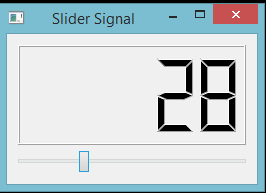고정 헤더 영역
상세 컨텐츠
본문

- In contrast, a class instance with slots declared to be (no data) is only 16 bytes, and 56 total bytes with one item in slots, 64 with two. For 64 bit Python, I illustrate the memory consumption in bytes in Python 2.7 and 3.6, for slots and dict (no slots defined) for each point where the dict grows in 3.6 (except for 0, 1, and 2.
- Hashes for dataslots-1.0.2-py2.py3-none-any.whl; Algorithm Hash digest; SHA256: 4fe302ab59c86e01a4fafe516776a198cd8a42dc696dcc9d525e2ec8ee0fe773: Copy.
slots provide a special mechanism to reduce the size of objects. It is especially useful if you need to allocate thousands of objects that would otherwise take lots of memory space. It is not very common but you may find it useful someday. Note, however, that it has some side effects (e.g. pickle may not work) and that Python 3 introduced memory optimisation on objects (sse http://www.python.org/dev/peps/pep-0412/) so slots may not be needed anymore ?
This is from Python side. Did htslots field of PyHeapTypeObject does not contain properly calculated slot names? Looking at the code, it appears that htslots does.not. include inherited slots. Msg171902 - Author: Terry J. Reedy (terry.reedy). Date: 2012-10-03 19:02; As I understand it, var(ob) is pretty much a synonym for ob.dict.
The main idea is as follows. As you may know every object in Python contains a dynamic dictionary that allows adding attributes. You can see the slots as the static version that does not allow additional attributes.
Contents
- slots
- Quick Example
Python Slots Vs Namedtuple
Here is the slots syntax uing the __slot__ keyword:
The traditional version would be as follows:
This means that for every instance you’ll have an instance of a dict. Now, for some people this might seem way too much space for just a couple of attributes.
Unfortunately there is a side effect to slots. They change the behavior of the objects that have slots in a way that can be abused by control freaks and static typing weenies. This is bad, because the control freaks should be abusing the metaclasses and the static typing weenies should be abusing decorators, since in Python, there should be only one obvious way of doing something.
Making CPython smart enough to handle saving space without __slots__ is a major undertaking, which is probably why it is not on the list of changes for P3k (yet).
I’d like to see some elaboration on the “static typing”/decorator point, sans pejoratives. Quoting absent third parties is unhelpful. __slots__ doesn’t address the same issues as static typing. For example, in C++, it is not the declaration of a member variable is being restricted, it is the assignment of an unintended type (and compiler enforced) to that variable. I’m not condoning the use of __slots__, just interested in the conversation. Thanks! – hiwaylon Nov 28 ‘11 at 17:541
Each python object has a __dict__ atttribute which is a dictionary containing all other attributes. e.g. when you type self.attr python is actually doing self.__dict__[‘attr’]. As you can imagine using a dictionary to store attribute takes some extra space & time for accessing it.
However, when you use __slots__, any object created for that class won’t have a __dict__ attribute. Instead, all attribute access is done directly via pointers.
So if want a C style structure rather than a full fledged class you can use __slots__ for compacting size of the objects & reducing attribute access time. A good example is a Point class containing attributes x & y. If you are going to have a lot of points, you can try using __slots__ in order to conserve some memory.
No, an instance of a class with __slots__ defined is not like a C-style structure. There is a class-level dictionary mapping attribute names to indexes, otherwise the following would not be possible: class A(object): __slots__= “value”,nna=A(); setattr(a, ‘value’, 1) I really think this answer should be clarified (I can do that if you want). Also, I’m not certain that instance.__hidden_attributes[instance.__class__[attrname]] is faster than instance.__dict__[attrname]. – tzot Oct 15 ‘11 at 13:56up vote 4 down vote
Slots are very useful for library calls to eliminate the “named method dispatch” when making function calls. This is mentioned in the SWIG documentation. For high performance libraries that want to reduce function overhead for commonly called functions using slots is much faster.
Now this may not be directly related to the OPs question. It is related more to building extensions than it does to using the slots syntax on an object. But it does help complete the picture for the usage of slots and some of the reasoning behind them.
By default, instances of both old and new-style classes have a dictionary for attribute storage. This wastes space for objects having very few instance variables. The space consumption can become acute when creating large numbers of instances.
The default can be overridden by defining __slots__ in a new-style class definition. The __slots__ declaration takes a sequence of instance variables and reserves just enough space in each instance to hold a value for each variable. Space is saved because __dict__ is not created for each instance.
This class variable can be assigned a string, iterable, or sequence of strings with variable names used by instances. If defined in a new-style class, __slots__ reserves space for the declared variables and prevents the automatic creation of __dict__ and __weakref__ for each instance. New in version 2.2.
Notes on using __slots__
Without a __dict__ variable, instances cannot be assigned new variables not listed in the __slots__ definition. Attempts to assign to an unlisted variable name raises AttributeError. If dynamic assignment of new variables is desired, then add ‘__dict__’ to the sequence of strings in the __slots__ declaration. Changed in version 2.3: Previously, adding ‘__dict__’ to the __slots__ declaration would not enable the assignment of new attributes not specifically listed in the sequence of instance variable names.
Python Slots Performance
Without a __weakref__ variable for each instance, classes defining __slots__ do not support weak references to its instances. If weak reference support is needed, then add ‘__weakref__’ to the sequence of strings in the __slots__ declaration. Changed in version 2.3: Previously, adding ‘__weakref__’ to the __slots__ declaration would not enable support for weak references.
__slots__ are implemented at the class level by creating descriptors (3.4.2) for each variable name. As a result, class attributes cannot be used to set default values for instance variables defined by __slots__; otherwise, the class attribute would overwrite the descriptor assignment.
If a class defines a slot also defined in a base class, the instance variable defined by the base class slot is inaccessible (except by retrieving its descriptor directly from the base class). This renders the meaning of the program undefined. In the future, a check may be added to prevent this.
Warning
effects of a __slots__ declaration is limited to the class where it is defined. In other words, subclasses will have a __dict__ (unless they also define __slots__).
__slots__ do not work for classes derived from ``variable-length’’ built-in types such as long, str and tuple.
Any non-string iterable may be assigned to __slots__. Mappings may also be used; however, in the future, special meaning may be assigned to the values corresponding to each key.
For every instance of any class, attributes are stored in a dictionary.
This means that for every instance you’ll have an instance of a dict. Now, for some people this might seem way too much space for just a couple of attributes.
If you have lots and lots and looooots of instances, and you want to save some memory, you can use __slots__. The basic idea is that when you define the __slots__ class attribute, those attributes will get just the enough space, without wasting space.
Here is the previous example using __slots__:

Now, one side effect of these __slots__ thing is that, whenever you define the __slots__ class attribute, your __dict__ attribute for every instance will be gone!. It’s not a surprise because that’s why you should use __slots__ in the first place… to get rid off the __dict__ in every instance, to save some memory remember?Can’t bind attributes to the instance any more…
Python Slots Class
Another side effect is that, as there is no __dict__, there is no way to add, at runtime, any attributes to your instance:
# This should should work if there is no __slots__ defined...>>> instance.new_attr = 10Traceback (most recent call last):
AttributeError: ‘myClass’ object has no attribute ‘new_attr’>>>Read only attributes?
Another one is that, if there is some kind of collision between the slot and a class attribute, then the class attribute will overwrite the slot and, as there is no __dict__, the class attribute will be read-only.
However if you want to have a __dict__, you can always insert into the __slots__ the ‘__dict__’ value, and all these little side effects will go away
But what if I wanted to add the ‘__dict__’ value into __slots__ at runtime?
sorry dude but, no can do.
reference: http://mypythonnotes.wordpress.com/2008/09/04/__slots__/:wq
This page describes the use of signals and slots in Qt for Python.The emphasis is on illustrating the use of so-called new-style signals and slots, although the traditional syntax is also given as a reference.
The main goal of this new-style is to provide a more Pythonic syntax to Python programmers.
- 2New syntax: Signal() and Slot()

Traditional syntax: SIGNAL () and SLOT()
QtCore.SIGNAL() and QtCore.SLOT() macros allow Python to interface with Qt signal and slot delivery mechanisms.This is the old way of using signals and slots.
The example below uses the well known clicked signal from a QPushButton.The connect method has a non python-friendly syntax.It is necessary to inform the object, its signal (via macro) and a slot to be connected to.
New syntax: Signal() and Slot()
The new-style uses a different syntax to create and to connect signals and slots.The previous example could be rewritten as:
Using QtCore.Signal()
Signals can be defined using the QtCore.Signal() class.Python types and C types can be passed as parameters to it.If you need to overload it just pass the types as tuples or lists.
In addition to that, it can receive also a named argument name that defines the signal name.If nothing is passed as name then the new signal will have the same name as the variable that it is being assigned to.
The Examples section below has a collection of examples on the use of QtCore.Signal().
Note: Signals should be defined only within classes inheriting from QObject.This way the signal information is added to the class QMetaObject structure.
Using QtCore.Slot()
Slots are assigned and overloaded using the decorator QtCore.Slot().Again, to define a signature just pass the types like the QtCore.Signal() class.Unlike the Signal() class, to overload a function, you don't pass every variation as tuple or list.Instead, you have to define a new decorator for every different signature.The examples section below will make it clearer.
Another difference is about its keywords.Slot() accepts a name and a result.The result keyword defines the type that will be returned and can be a C or Python type.name behaves the same way as in Signal().If nothing is passed as name then the new slot will have the same name as the function that is being decorated.
Examples
The examples below illustrate how to define and connect signals and slots in PySide2.Both basic connections and more complex examples are given.
- Hello World example: the basic example, showing how to connect a signal to a slot without any parameters.
- Next, some arguments are added. This is a modified Hello World version. Some arguments are added to the slot and a new signal is created.
- Add some overloads. A small modification of the previous example, now with overloaded decorators.
- An example with slot overloads and more complicated signal connections and emissions (note that when passing arguments to a signal you use '[]'):
- An example of an object method emitting a signal:
- An example of a signal emitted from another QThread:
- Signals are runtime objects owned by instances, they are not class attributes:




